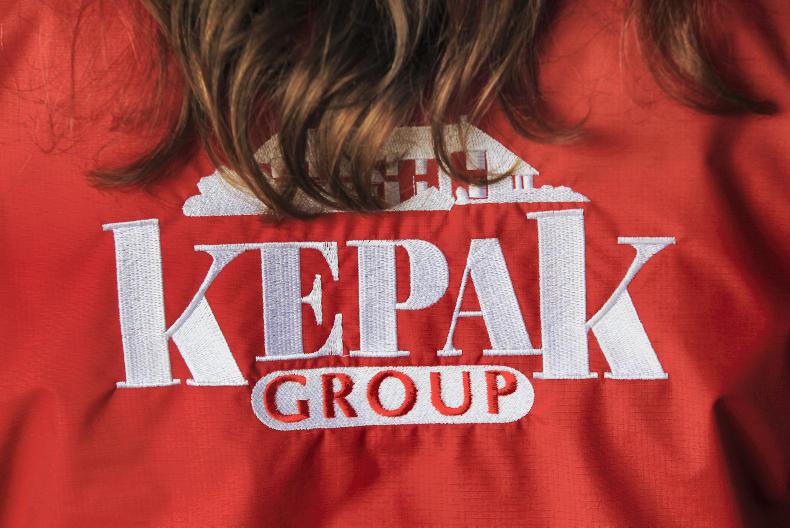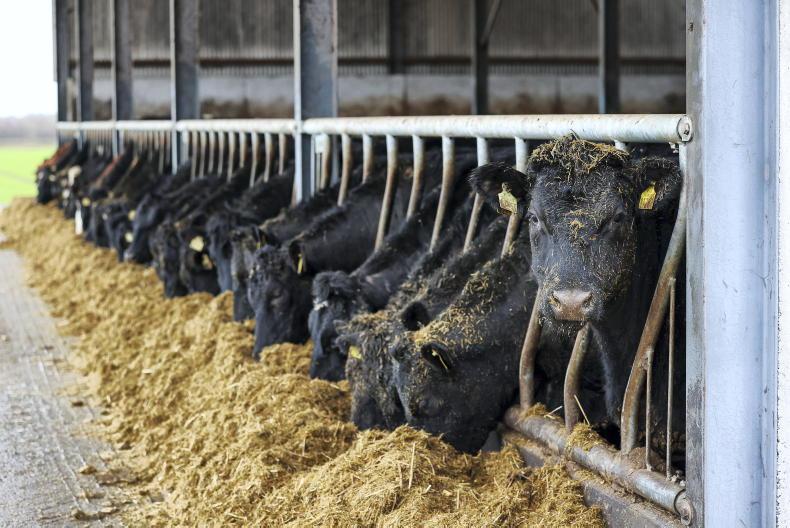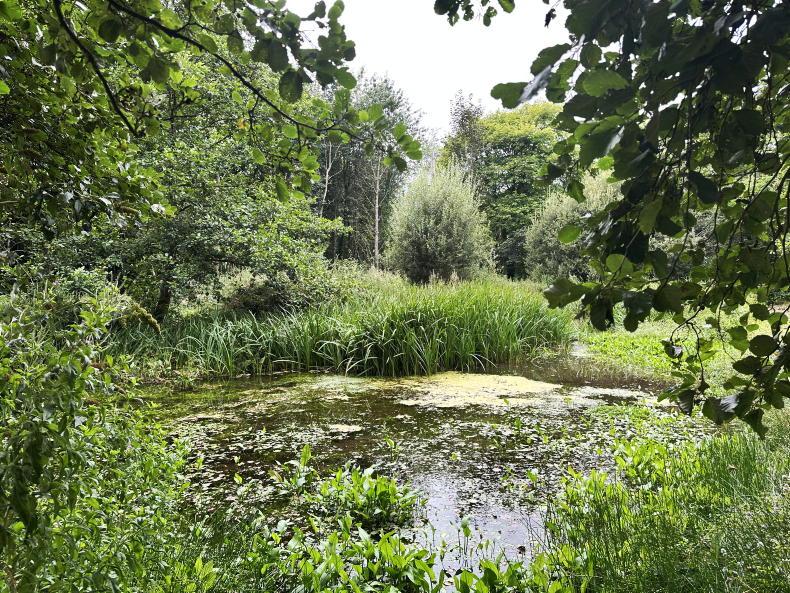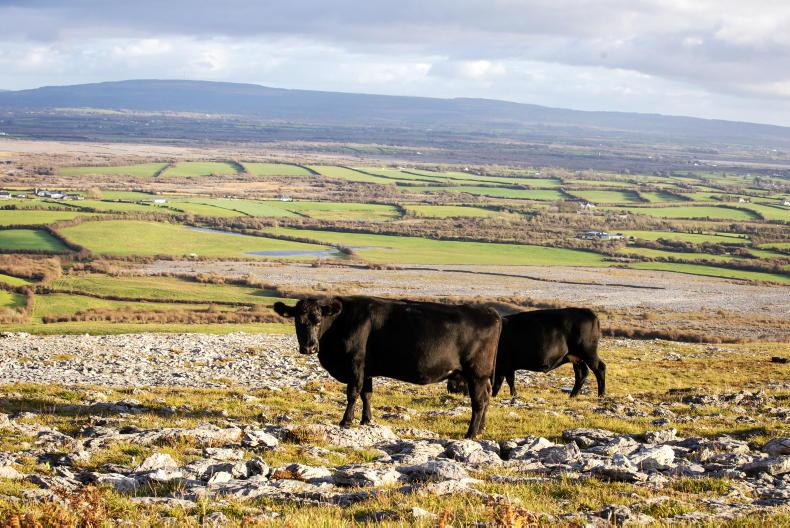Kepaks inaugural sustainability report has committed to reducing food waste by 50%, significantly reducing water and energy usage and developing healthier products.
The pledge follows Kepak’s donation to Food Cloud in 2017, which provided 18,040 meals to those in need, and saved 90,300kg in CO2 emissions.
They have committed to knowledge transfer and implementation of best practice management on farms with environment and biodiversity held at the fore of these commitments.
The company aims to build on significant sustainability achievements during 2017, including reducing general waste by 100t and saving 20 Olympic swimming pools of water and 10,000,000kg of carbon.
Sustainable development goals
The announcement coincided with European Sustainable Development Week 2018, the European-wide initiative aimed to promote sustainable development goals (SDGs).
Eimear Gallagher, environmental officer, Kepak Group, said: “At Kepak, we recognised our position and responsibilities within the supply chain and the importance of working with each of our stakeholders to create a blueprint for achieving growth in a sustainable way.”
An internal sustainability programme called “Kepak Core” is central to reaching future goals outlining target areas of improvement. A number of achievements have been accomplished by the Kepak Core programme in 2017.
Agriculture and animal welfare.Responsible sourcing.Resource efficiency.Health and nutrition.People and communities.Kepak Farm
Kepak Farm is a beef-finishing enterprise located near Clonee, Co Meath. The company collaborates with farmers to share best management practices designed to produce top-quality beef for key partner customers, with the aim to improve decision-making and maximise production efficiencies along the entire supply chain, from farm to fork.
Topics of importance shared among the 1,200 visitors to the farm in 2017 were antimicrobial resistance, animal nutrition/feeding, grass land management and reducing the carbon footprint.
Priority
Taking priority from these areas of improvement is the reduction of carbon emissions throughout the supply chain. This year, there has been a 60% reduction in carbon emissions from 2017, while carbon emissions from electricity this year will be zero.
A number of future commitments have also been outlined in the sustainability report including showcasing Kepak Farm as a knowledge transfer hub to disseminate technical and practical knowledge on carbon neutral farming, technology advancements and latest research and development.
It also committed to establish a biodiversity plan for all sites and Kepak Farm by 2020 and to reduce carbon footprint of factories by 30% by 2030.
Read more
Kepak courting 2 Sisters?
Kepak Group signs €35m supply contract with China-based company
Kepaks inaugural sustainability report has committed to reducing food waste by 50%, significantly reducing water and energy usage and developing healthier products.
The pledge follows Kepak’s donation to Food Cloud in 2017, which provided 18,040 meals to those in need, and saved 90,300kg in CO2 emissions.
They have committed to knowledge transfer and implementation of best practice management on farms with environment and biodiversity held at the fore of these commitments.
The company aims to build on significant sustainability achievements during 2017, including reducing general waste by 100t and saving 20 Olympic swimming pools of water and 10,000,000kg of carbon.
Sustainable development goals
The announcement coincided with European Sustainable Development Week 2018, the European-wide initiative aimed to promote sustainable development goals (SDGs).
Eimear Gallagher, environmental officer, Kepak Group, said: “At Kepak, we recognised our position and responsibilities within the supply chain and the importance of working with each of our stakeholders to create a blueprint for achieving growth in a sustainable way.”
An internal sustainability programme called “Kepak Core” is central to reaching future goals outlining target areas of improvement. A number of achievements have been accomplished by the Kepak Core programme in 2017.
Agriculture and animal welfare.Responsible sourcing.Resource efficiency.Health and nutrition.People and communities.Kepak Farm
Kepak Farm is a beef-finishing enterprise located near Clonee, Co Meath. The company collaborates with farmers to share best management practices designed to produce top-quality beef for key partner customers, with the aim to improve decision-making and maximise production efficiencies along the entire supply chain, from farm to fork.
Topics of importance shared among the 1,200 visitors to the farm in 2017 were antimicrobial resistance, animal nutrition/feeding, grass land management and reducing the carbon footprint.
Priority
Taking priority from these areas of improvement is the reduction of carbon emissions throughout the supply chain. This year, there has been a 60% reduction in carbon emissions from 2017, while carbon emissions from electricity this year will be zero.
A number of future commitments have also been outlined in the sustainability report including showcasing Kepak Farm as a knowledge transfer hub to disseminate technical and practical knowledge on carbon neutral farming, technology advancements and latest research and development.
It also committed to establish a biodiversity plan for all sites and Kepak Farm by 2020 and to reduce carbon footprint of factories by 30% by 2030.
Read more
Kepak courting 2 Sisters?
Kepak Group signs €35m supply contract with China-based company








SHARING OPTIONS